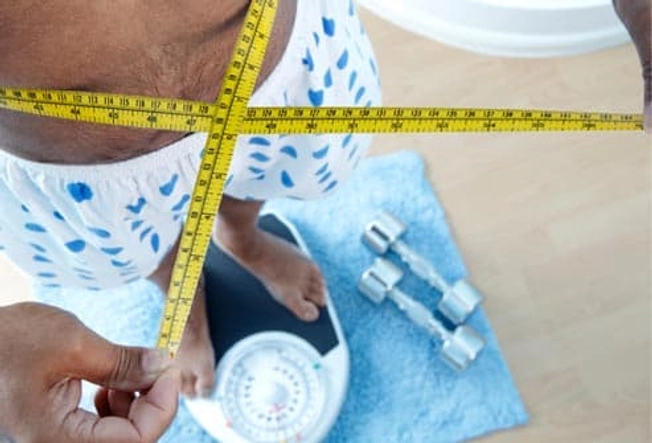18 Secrets for a Longer Life


Protect Your DNA
As you age, the ends of your chromosomes become shorter. This makes you more likely to get sick. But lifestyle changes can boost an enzyme that makes them longer. Plus, studies show diet and exercise can help protect them. The bottom line: Healthy habits may slow aging at the cellular level.

Play to Win
An 80-year study found people who are conscientious -- meaning they pay attention to detail, think things through, and try to do what's right -- live longer. They do more for their health and make choices that lead to stronger relationships and better careers.

Make Friends
Here's another reason to be grateful for your friends: They might help you live longer. Dozens of studies show a clear link between strong social ties and a longer life. So make the time to keep in touch.

Choose Friends Wisely
Your friends’ habits rub off on you, so look for buddies with healthy lifestyles. Your chances of becoming obese go up if you have a friend who adds extra pounds. Smoking also spreads through social ties, but quitting is also contagious.

Quit Smoking
We know giving up cigarettes can lengthen your life, but by how much may surprise you. A 50-year British study shows that quitting at age 30 could give you an entire decade. Kicking the habit at age 40, 50, or 60 can add 9, 6, or 3 years to your life, respectively.

Embrace the Art of the Nap
A siesta is standard in many parts of the world, and now there's scientific evidence that napping may help you live longer. One study showed that those who had a regular snooze were 37% less likely to die from heart disease than those who rarely steal a few winks. Researchers think naps might help your heart by keeping stress hormones down.

Follow a Mediterranean Diet
It's rich in fruits, vegetables, whole grains, olive oil, and fish. The plan can also put a serious dent in your chances of getting metabolic syndrome -- a mix of obesity, high blood sugar, high blood pressure, and other things that make you more likely to get heart disease and diabetes.

Eat Like an Okinawan
The people of Okinawa, Japan, once lived longer than any other group on Earth. The region's traditional diet is why. It's high in green and yellow vegetables and low in calories. Plus, some Okinawans made a habit of eating only 80% of the food on their plate. Younger generations have dropped the old ways and aren't living as long.

Get Hitched
Married people tend to outlive their single friends. Researchers say it's due to the social and economic support that wedded bliss provides. While a current union offers the greatest benefit, people who are divorced or widowed have lower death rates than those who've never tied the knot.

Lose Weight
If you're overweight, slimming down can protect against diabetes, heart disease, and other conditions that take years off your life. Belly fat is bad for you, so focus on deflating that spare tire. Eat more fiber and exercise regularly to whittle your middle.

Keep Moving
The evidence is clear. People who exercise live longer on average than those who don't. Regular physical activity lowers your chances of getting heart disease, stroke, diabetes, some forms of cancer, and depression. It may even help you stay mentally sharp into old age. Ten-minute spurts are fine, as long as they add up to about 2.5 hours of moderate exercise per week.

Drink in Moderation
Heart disease is less common in people who drink in moderation than in people who don't drink at all. On the other hand, too much alcohol pads the belly, boosts blood pressure, and can cause a host of other health problems. If you don’t drink, don’t start now! The risks outweigh the benefits when it comes to alcohol. If you do drink alcohol limit yourself according to limits set by national guidelines (from the National Institute on Alcohol Abuse and Alcoholism-NIAAA). The limits are based on your sex and age:

Get Spiritual
People who attend religious services tend to live longer than those who don't. In a 12-year study of people over age 65, those who went more than once a week had higher levels of a key immune system protein than their peers who didn't. The strong social network that develops among people who worship together may boost your health.

Forgive
Letting go of grudges has surprising physical health benefits. Chronic anger is linked to heart disease, stroke, poorer lung health, and other problems. Forgiveness will reduce anxiety, lower blood pressure, and help you breathe more easily. The rewards tend to go up as you get older.

Use Safety Gear
Accidents are the third most common cause of death in the U.S. and the top cause for people ages 1 to 24. Wearing safety gear is an easy way to boost your odds of a long life. Seatbelts reduce the chances of death in a car wreck by 50%. Most fatalities from bike accidents are caused by head injuries, so always wear a helmet.

Make Sleep a Priority
Getting enough quality sleep can lower your risk of obesity, diabetes, heart disease, and mood disorders. It'll also help you recover from illness faster. Burning the midnight oil, on the other hand, is bad for you. Snooze for less than 5 hours a night and you might boost your chances of dying early, so make sleep a priority.

Manage Stress
You'll never completely avoid stress, but you can learn ways to control it. Try yoga, meditation, or deep breathing. Even a few minutes a day can make a difference.

Keep a Sense of Purpose
Hobbies and activities that have meaning for you may lengthen your life. Japanese researchers found men with a strong sense of purpose were less likely to die from stroke, heart disease, or other causes over a 13-year period than those who were less sure of themselves. Being clear about what you're doing and why can also lower your chances of getting Alzheimer’s disease.
